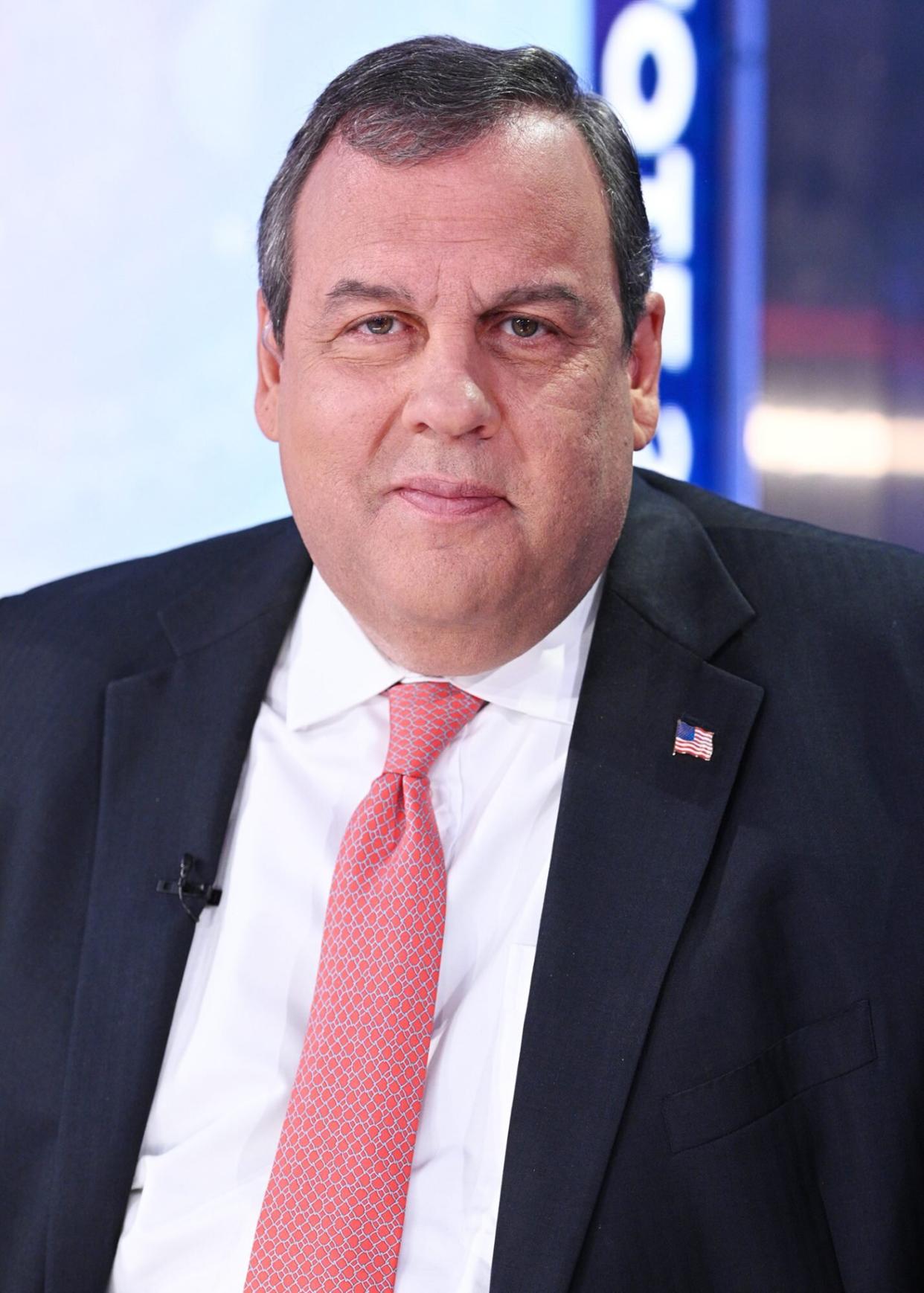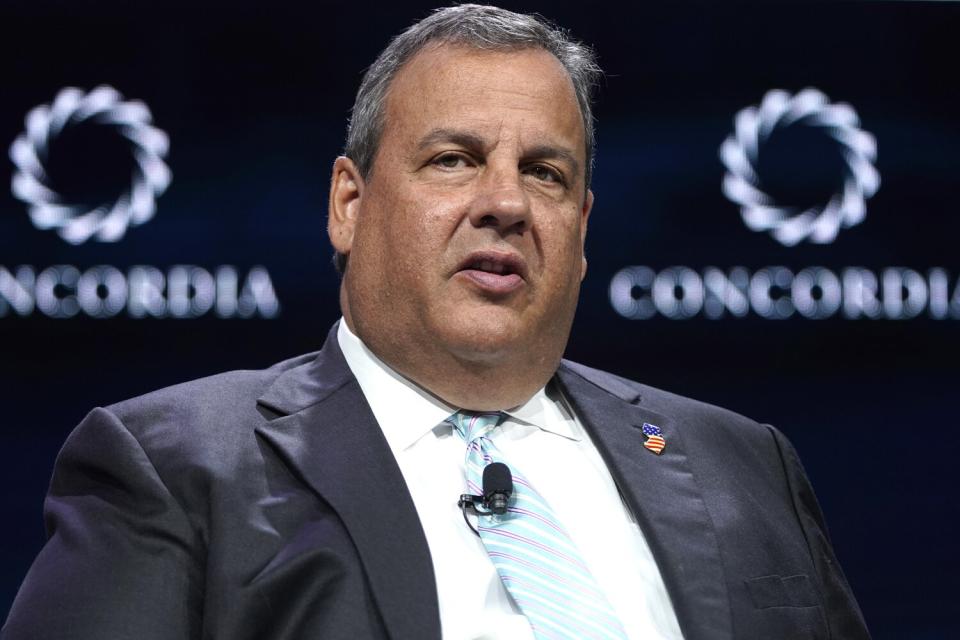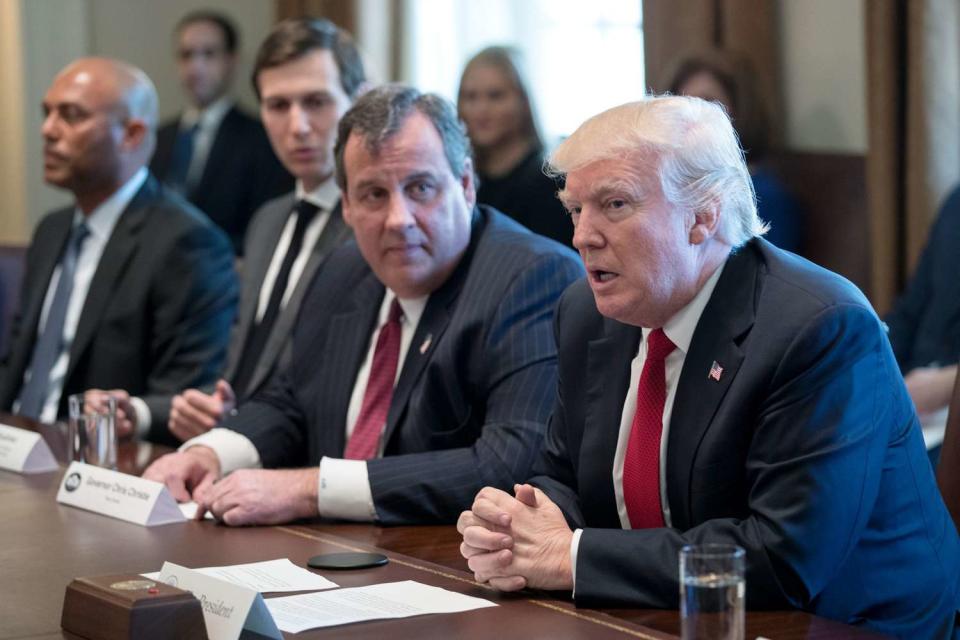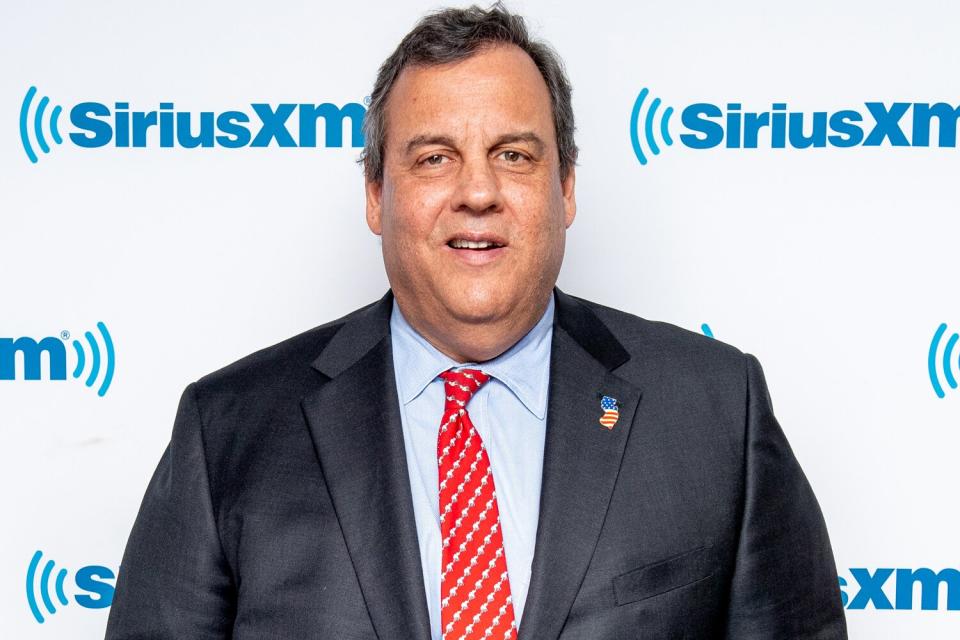Chris Christie Thought COVID Might Kill Him: What He Has to Say About His Future and His Old Friend Trump

- Oops!Something went wrong.Please try again later.
- Oops!Something went wrong.Please try again later.
- Oops!Something went wrong.Please try again later.
Lorenzo Bevilaqua/ABC via Getty Chris Christie
A rented U-Haul in a cash-only toll lane on the Ohio turnpike is a far cry from the White House's corridors of power. But that's where Chris Christie found himself this past spring, after his daughter got a promotion and enlisted the help of her parents when making the move to Chicago.
"My wife and daughter drove in her car," Christie, 59, tells PEOPLE in a recent interview, "and I drove a U-Haul truck."
The former New Jersey governor-turned-Trump adviser and critic didn't have a toll pass for the 12-plus hour drive. So he had to make routine stops, paying the tolls with cash and dealing with the occasional Hey, are you...
"I got to end of Ohio turnpike and the toll-taker said, 'Has anyone ever told you you look like Chris Christie? I said, 'Yeah I get that all the time,' " Christie recalls. "She said, 'No it's uncanny.' So I said: 'Well, that's because I am Chris Christe.' And she said, 'What the hell is Chris Christie doing in a U-Haul in Ohio?' I said, 'Ma'am, I've been asking myself that same question since I left New Jersey at 6 a.m. this morning.' "
In truth, that journey might not be the strangest one Christie has taken in recent years.
Last October, after getting diagnosed with COVID-19 following a well-publicized "super-spreader" event at the Trump White House, Christie checked himself into Morristown Medical Center.
As he was at higher risk for coronavirus complications due to underlying health issues, including asthma, the hospital stay was meant as a precaution — though as Christie writes in his new book, Republican Rescue: Saving the Party from Truth Deniers, Conspiracy Theorists, and the Dangerous Policies of Joe Biden, it all felt "very serious."
Just 24 hours after he "started feeling awful" and only six hours since he had gotten his official test results, Christie was standing outside the emergency room, where his longtime priest met him to offer prayers and anoint him with oils before he checked in.
"Standing outside the emergency room with Monsignor Geno, this was the first time I had thought about my own mortality," Christie writes in Republican Rescue.
Speaking with PEOPLE, Christie muses about that week spent in a hospital bed (a week when, as he also writes, then-First Lady Melania Trump checked in on him every day, while her husband offered just one phone call — to see if he would be publicly blamed for Christie's sickness).
RELATED: Chris Christie Says Melania Trump Checked In On Him Every Day He Was Hospitalized With COVID-19

Riccardo Savi/Getty Images Chris Christie
"It reinforced to me how central the events in life are that you want to be alive for," Christie says. "None of my children have been married yet and gosh, I'd love to be there to walk my daughters down the aisle ... I was so sad about the idea I might not be able to do that, or to see a grandchild."
The months after his hospital stay — when Donald Trump ultimately lost the presidential election but continued to claim it was rigged against him, both before and after a violent group of his supporters stormed the U.S. Capitol in January — inspired his book, which Christie, an ABC News contributor, refrains from saying is a prelude to a widely rumored 2024 presidential campaign.
Instead, he insists he decided to write his new book based on "how much [Republicans] lost both in 2020 and 2018 and what the impact of that was, in my view, on the country."
The impact, Christie writes, is a party that has grown bloated with conspiracy theories — and is more concerned with the personal grievances of the former president than the issues affecting everyday Americans: issues like education, the economy and national security.
"Someone needed to stand up and say, 'Look, we need to get real and we need to start getting the job done because if we don't, we won't have a role in this country moving forward,' " Christie says, not not sounding like a 2024 contender.
Again, though, he stops short of saying he's the person for that job, instead pointing to a number of other Republican faces whom he says are bright spots in the party despite Trump's continued dominance: Virginia Gov.-elect Glenn Youngkin as well as Maryland Gov. Larry Hogan, Massachusetts Gov. Charlie Baker and others.
RELATED: Chris Christie Is Considering a 2024 Presidential Bid, Whether Trump Runs or Not: Report
Despite the cynicism that decades in politics might bring, Christie says he is feeling hopeful about both the future of his party and the country.
"Oddly, what made me hopeful was the day that made most people depressed: Jan. 6 was an awful day for our democracy and our country [but] what gave me hope was that by 4 a.m. that day, Congress was back ... doing their job to certify the election," he says.
He continues: "Our elected representatives found a way to preserve democracy — the way it was written by our founding fathers. And they did it without regard to whatever personal danger they might have been in."
Of course, it's impossible to talk about about the political climate without mentioning his old friend, former President Trump.

Shawn Thew-Pool/Getty From left: Jared Kushner, Chris Christie and Donald Trump in 2017
While the two have recently gone back and forth in public, Trump hasn't spoken to him privately in months, Christie tells PEOPLE.
"Look, I think Donald Trump and I have been friends for 20 years," he says. "During that friendship, we've had our ups and our downs, but my view is: I'm going to be here to tell the truth as I see it. That's what I've tried to do with the book. That's what I was shooting for."
In his book, Christie straddles the line between distancing himself from Trump's worst conduct and embracing much of Trump's vision for the party and the enthusiasm he undeniably riled in the base. Christie makes repeated references to being one of the first big names to endorse Trump for president while also taking pains to criticize Trump for his increasing obsessions over his loss.
RELATED: Chris Christie Says 'Not a Whole Lot of Question' Donald Trump Should Be Impeached After Riots
More than a year after the 2020 election, Christie casts himself as one of the more level-headed people in the former president's orbit, however far-flung he finds himself now — someone, Christie contends, who improved Trump (or, perhaps, headed off his worst instincts).
"Very few people were as publicly invested in the success of Donald Trump as I was," Christie writes in Republican Rescue, adding: "I know I helped make Trump a better candidate and a better president."
Asked what the inverse of that is — whether Trump himself learned anything from his own experience, or taught Christie anything about leadership, Christie tells PEOPLE: "I don't know if I learned this from him but it reinforced something with me: his authenticity. He is who he is; he doesn't try to pretend to be someone else. It's some peoples' cup of tea. But he doesn't try to be something he's not, and I think that's an important trait to have."
Still, Christie believes that recent elections — even those in which Republicans won — have proven to be something of a referendum on Trump.

Roy Rochlin/Getty Images Chris Christie
"In both Virginia and New Jersey, the candidates that emphasized the past not did not do as well as they should have," he says. "[Virginia Democratic nominee] Terry McAuliffe — who was spending a lot of time talking about Donald Trump — wound up losing. [New Jersey Gov.] Phil Murphy almost lost and he had so many ads on Donald Trump."
Those losses (or, in the case of Murphy, a surprisingly narrow win) offer a glimpse into the psyche of voters whom Christie says no longer want to hear about Trump's many, many grievances.
And, Christie notes, he just so happens to have written a new book about the same topic.
"I don't think people want to hear that any longer," he says. "I think people want a new day. There is a pathway to it. Hopefully the combination of those election results and the book coming out ... will give people a lot of encouragement that there is a new path for the Republican Party."

